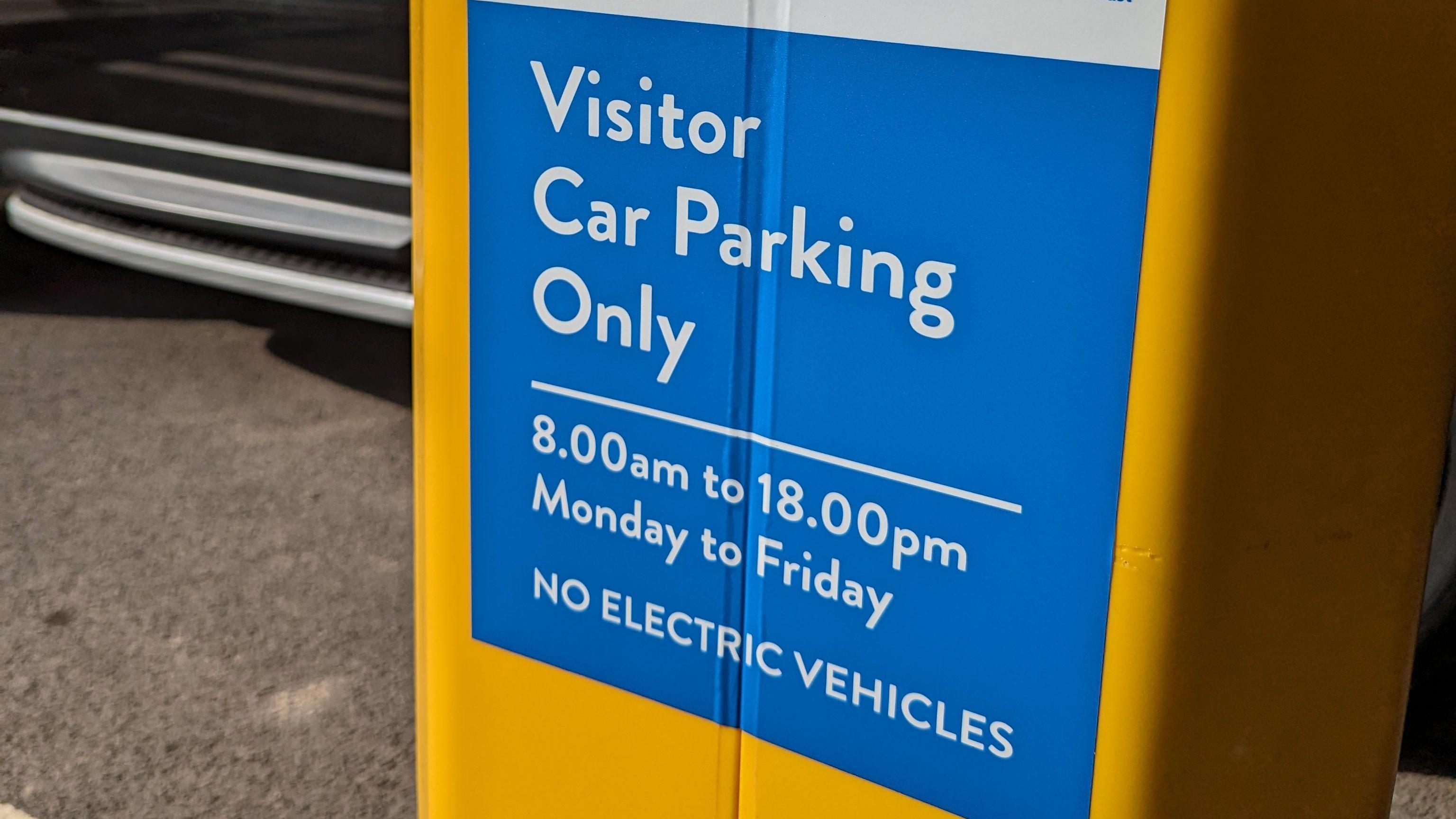
ELECTRIC CAR DRIVER TURNED AWAY FROM HOSPITAL CAR PARK
A father who was taking his child to Alder Hey hospital in Liverpool says he was turned away from the car park because he was driving an electric vehicle (EV).
Paul Freeman-Powell said he was told to park next to nearby grass because his car "could explode."
The hospital says it has temporarily banned access to the car park while it improves its sprinkler system.
But industry figures have challenged the decision, pointing to research that indicates petrol cars are considerably more likely to catch fire than EVs.
Mr Freeman-Powell told the BBC he attempted to tell the security guard he spoke to that the hospital's policy did not make any sense.
But he said in the end he complied because he did not want his seven-year-old son to miss an appointment he had waited nearly five years for.
In a statement issued to the BBC, Alder Hey hospital said following advice from Merseyside Fire and Rescue it had "temporarily restricted the parking of electric vehicles in one of our smaller car parks while we upgrade its fire sprinkler system."
"Electric vehicles are still able to park in our main Hospital car park", it continued, pointing out it also had 14 spaces with EV charging points.
Merseyside Fire and Rescue has been contacted for comment.
'Misinfomation'
Mr Freeman-Powell shared a picture of a sign at the entrance to the car park which reads “no electric vehicles” on X, formerly Twitter.
Fair Charge, a campaign group for electric vehicles, described it as “misinformation erroneously shaping public policy”.
Its founder, the motoring journalist Quentin Wilson, said "for the NHS to restrict electric cars from coming into car parks dramatically conflicts with the clean air and health benefits from zero tailpipe emissions."
Colin Walker, head of transport at the research group the Energy and Climate Intelligence Unit, agreed that the evidence did not support the hospital's position.
“Data from EV FireSafe, which is backed by the Australian Government, indicates that petrol cars are over 80 times more likely to set on fire than EVs,” he told the BBC.
He also highlighted a report released last year from the Swedish Civil Contingencies Agency which found that in 2022 there was an average of 3.8 fires per 100,000 electric and hybrid cars, and 68 fires per 100,000 cars of all fuel types (this figure included deliberate arson).
“It’s important that drivers understand the relative risks", Mr Walker said,
He also pointed out that a recent car fire which closed Luton Airport was started by a vehicle running on diesel fuel, not electric as some initial reports claimed.
Electric car sales have slowed this year, comprising just 15% of new cars registered in the UK in March 2024, according to figures released by the Society of Motor Manufacturers and Traders (SMMT).
The US EV maker Tesla reported a drop in revenue for the first time since 2021, and has been laying off staff, with co-founder Elon Musk saying the firm had to be “absolutely hardcore” about cutting costs.
2024-05-03T13:57:55Z dg43tfdfdgfd